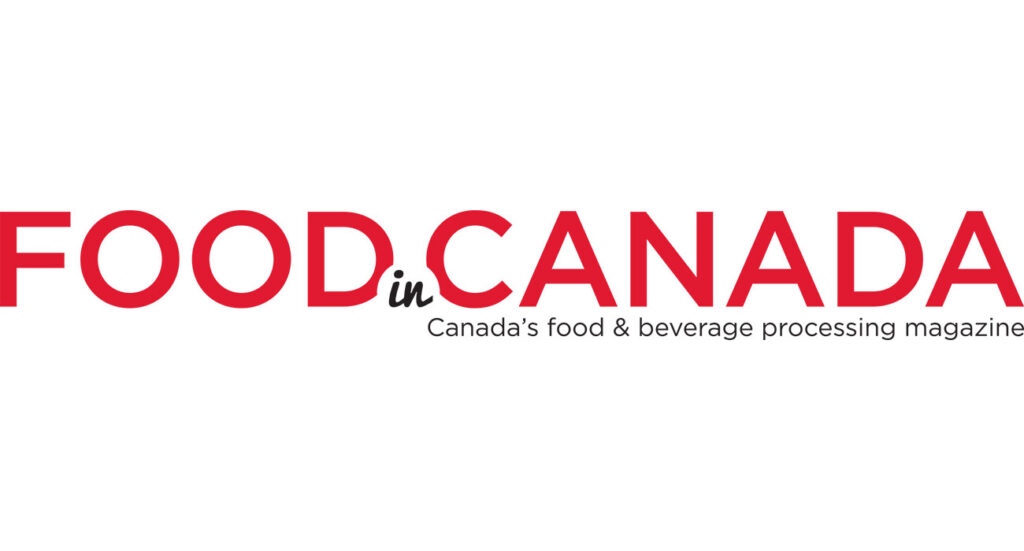CFIN maps Canada’s path to global foodtech leadership

The Canadian Food Innovation Network’s (CFIN’s) inaugural Foodtech in Canada 2025 Ecosystem Report offers a comprehensive overview of Canada’s foodtech ecosystem.
The report leverages foodtech data intelligence from Forward Fooding, a global foodtech ecosystem platform, and provides an extensive review of over 9,950 global companies and 320 Canadian companies. Enriched by expert insights from Canada’s leading food industry figures, it offers a comprehensive reflection on the progress of the Canadian foodtech ecosystem and serves as a road map for advancing Canada’s leadership on the global foodtech stage.
“Canada’s foodtech ecosystem has made remarkable progress over the last decade, driving transformative innovations that enhance sustainability, boost economic productivity, and create jobs nationwide,” says Dana McCauley, CEO of CFIN. “However, to truly realize our potential as a global foodtech superpower, we must address the pressing challenges that remain. CFIN is fully committed to empowering homegrown innovators and fostering solutions that will shape the future of food technology in Canada.”
Public support drives foodtech growth, but private capital lags in Canada
The report charts over $4.1B in Canadian agrifoodtech investments between 2014 and 2024, in which $2.3B went specifically to foodtech projects.
While Canadian foodtech has seen a healthy inbound of investments, with an 8.4 per cent CAGR compared to -2.6 per cent globally, the report found an unbalanced funding distribution between public and private funding.
Over the past four years, approximately 60 per cent of foodtech investment rounds in the U.K. and the U.S. have been backed by venture capital, compared to just 40 per cent in Canada. However, public grants play a much more significant role in Canada, comprising nearly one-third (30 per cent) of all foodtech funding rounds — significantly higher than the five per cent in the U.K. and eight per cent in the U.S.
Canada’s unique strengths: plant-based, biotech, and food waste solutions
The plant-based sector has become the top foodtech domain in Canada, with a 49.5 per cent five-year CAGR and over 60 companies delivering the next generation of food and drinks, such as New School Foods, No Meat Factory, and Smallfood. On the global stage, the report shows that Canada has a larger pool of plant-based protein innovators, representing 26 per cent of the Canadian foodtech ecosystem, compared to the 14 per cent global average.
More and more Canadian startups are developing solutions to address the country’s 21 million tonnes of food waste, ranging from repurposing the ‘outcasts’ of the food industry to converting waste into syrup. This growth is reflected across the 11 food waste management companies examined in the report such as Flashfood, Knead Tech, and Crush Dynamics, with this domain achieving a 40.7 per cent five-year CAGR.
Canada’s biotech sector has seen significant growth in food processing, with 18 companies using innovative biotech processes to produce nutrient-dense proteins for infant formulas, cognitive health supplements, and other food products. Notable companies in this field include Mara Renewables and Chinova Bioworks, driving this segment’s 24.7 per cent CAGR over a five-year period.
Growth capital gap, labour shortages, supply chain issues hinder foodtech growth
While Canada’s venture capital round sizes for pre-seed and seed rounds closely align with the U.K. and the U.S., a notable decline in later stages poses challenges for Canadian foodtech companies in accessing growth capital. On average, Series A and B deal sizes are about twice as large in the U.K. and the U.S. compared to Canada. Series C rounds in the U.S. are three times higher than Canada’s.
Labour shortages and supply chain complexities pose significant challenges for Canada’s food system, with manufacturers, restaurants, retailers, distributors, and foodtech companies struggling to find talent amid an aging workforce, low national birth rate, reduced immigration and temporary foreign worker levels, and steep competition.
Canada’s journey to global foodtech leadership
With strengths like access to quality agrifood systems, world-class foodtech expertise, a strong network of research and innovation hubs, and government-backed programs for foodtech innovation, Canada’s foodtech ecosystem has made notable strides over the last decade. However, critical obstacles remain to be addressed throughout the sector, hindering opportunities to scale promising ventures and adopt their novel innovations.
Source: www.foodincanada.com

